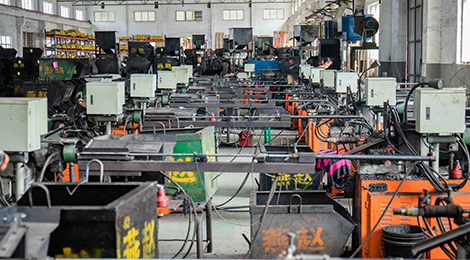High-Quality Custom Aerospace Washers for Enhanced Performance and Reliability in Aviation Applications
Aug . 06, 2024 13:58 Back to list
High-Quality Custom Aerospace Washers for Enhanced Performance and Reliability in Aviation Applications
The Importance of OEM Aerospace Washers in Aerospace Engineering
In the highly specialized field of aerospace engineering, the significance of every component cannot be overstated. Among these components, OEM (Original Equipment Manufacturer) aerospace washers play a critical role in ensuring the safety, reliability, and performance of aircraft and spacecraft. This article explores the various aspects of OEM aerospace washers, their applications, and their importance in maintaining high industry standards.
Understanding OEM Aerospace Washers
OEM aerospace washers are precision-engineered fasteners that serve to distribute loads and reduce friction between parts in aerospace applications. Made from high-quality materials such as titanium, aluminum, and stainless steel, these washers are designed to meet stringent aerospace industry standards (such as AS9100 and AS9120). The use of OEM washers guarantees that each component adheres to the specifications set forth by the original equipment manufacturer, ensuring optimal performance and safety.
Applications in Aerospace Engineering
Washers are utilized in a variety of aerospace applications, from commercial and military aircraft to spacecraft and satellites. They are typically employed in connections between bolts and nuts, helping to prevent loosening due to vibration and dynamic loads. In addition, washers assist in sealing joints, reducing the risk of leaks in hydraulic and fuel systems. The aerospace sector heavily relies on these components in assemblies ranging from engines to landing gear, where the failure of even a small part can lead to catastrophic consequences.
The Advantages of Using OEM Washers
1. Quality Assurance One of the primary advantages of using OEM aerospace washers is the assurance of quality. These washers are manufactured under controlled conditions and undergo rigorous testing to ensure they can withstand extreme environments. This quality assurance is crucial in aerospace applications, where safety is paramount.
oem aerospace washers

2. Compatibility OEM washers are designed to fit seamlessly with other components from the same manufacturer. This compatibility reduces the risk of failure due to improper fitting or mismatched materials, which is essential for maintaining structural integrity.
3. Durability Aerospace applications often expose components to harsh conditions such as high temperatures, corrosive environments, and significant mechanical stress. OEM washers are engineered to resist these challenges, ensuring longevity and reliability.
4. Regulatory Compliance The aerospace industry is governed by strict regulations to ensure the safety and reliability of aircraft and spacecraft. Using OEM parts, including washers, ensures compliance with these regulations, thereby safeguarding operators and passengers alike.
Innovations in Washer Technology
The aerospace industry is continuously evolving, and so too are the technologies surrounding OEM aerospace washers. Advanced manufacturing techniques such as additive manufacturing (3D printing) allow for the production of complex washer designs that were previously impossible to create. Additionally, the development of new materials, such as lightweight composites and advanced alloys, is enabling engineers to design washers that not only improve performance but also enhance fuel efficiency by reducing overall aircraft weight.
Conclusion
In conclusion, OEM aerospace washers are fundamental components in the aerospace industry, crucial for ensuring safety, reliability, and performance. Their role in load distribution, vibration damping, and sealing makes them indispensable in various applications. As technology advances, the significance of these washers will only increase, necessitating the continued innovation and adherence to high standards within the industry. As engineers and manufacturers prioritize quality and compatibility in their designs, OEM aerospace washers will remain a vital component of aerospace engineering, safeguarding the future of air and space travel.
Latest news
-
High-Quality Panel Stud Bolt Reliable Panel Stud Bolt Factory & Suppliers
NewsJul.08,2025
-
High-Precision Fine Thread Locknuts Manufacturer & Supplier Custom Solutions
NewsJul.08,2025
-
PH Imperial Stud Bolt – High Strength Fasteners from Leading Supplier & Factory
NewsJul.07,2025
-
High-Quality Allen Wrench Bolts Leading Factory, Company & Suppliers
NewsJul.07,2025
-
Wholesale Ball Stud Bolt - High Quality Supplier & Factory Price Reliable Wholesale Ball Stud Bolt Company
NewsJul.06,2025
-
High-Strength Alloy Bolts Manufacturer & Supplier Quality Alloy Fasteners Factory
NewsJul.06,2025
